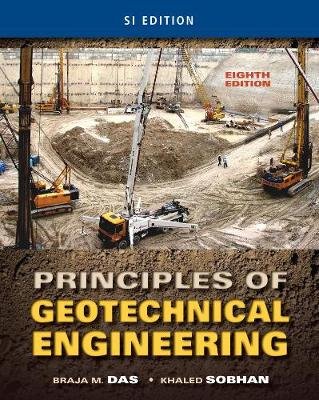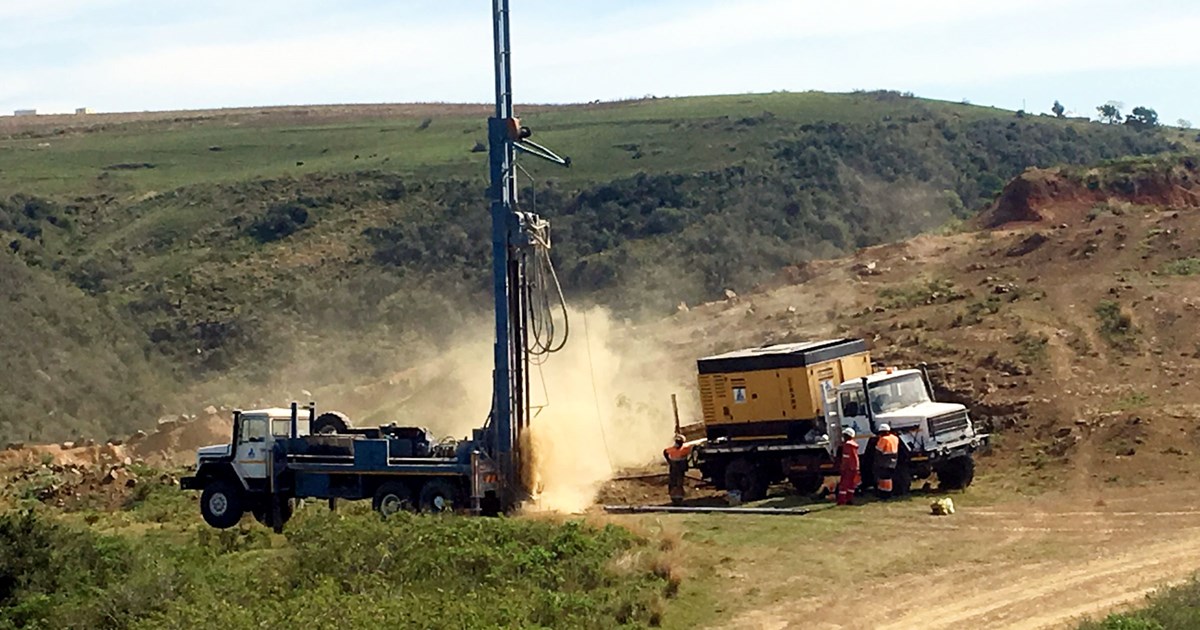Why All About Geotechnical Engineering Matters in Today's Framework Development
Wiki Article
The Importance of Geotechnical Design in Attending To Ecological Obstacles and Enhancing Building And Construction Security
Geotechnical design serves as a foundation in the crossway of environmental stewardship and building safety, offering crucial insights into the habits of dirt and rock under various problems. By executing critical site examinations and customized reduction procedures, geotechnical engineers play a vital role in safeguarding both human lives and ecological stability.
Role of Geotechnical Engineering
Geotechnical engineering plays a vital duty in the style and building and construction of infrastructure by resolving the habits of soil and rock materials under various problems. This area of engineering is crucial for understanding the communication between frameworks and the ground, which includes figuring out the load-bearing capability of dirt, assessing stability, and predicting prospective negotiation or failure.Geotechnical designers are liable for carrying out site investigations, which include tasting and screening dirt and rock to collect data on their chemical and physical properties. This info is crucial for designing foundations, preserving walls, and other earth-retaining frameworks that ensure safety and longevity. In addition, geotechnical engineering informs the option of proper building and construction methods and materials, consequently decreasing dangers connected with soil behavior.
Moreover, the combination of geotechnical engineering concepts into metropolitan preparation and environmental management is vital for resolving obstacles such as ground contamination and groundwater management. By comprehending geotechnical factors, designers can develop lasting solutions that enhance the resilience of framework against all-natural risks, while likewise promoting ecological stewardship. Inevitably, the role of geotechnical engineering is vital for accomplishing safe, long lasting, and ecologically conscious building methods.
Soil Disintegration Reduction
Dirt erosion positions a substantial hazard to both environmental security and framework honesty, impacting approximately 24 billion tons of abundant dirt shed yearly worldwide. This phenomenon is aggravated by variables such as logging, urbanization, and poor agricultural practices. Geotechnical engineering plays a pivotal function in establishing efficient soil disintegration mitigation methods that guard both the atmosphere and building and construction projects.One strategy involves the execution of erosion control techniques such as plants planting, which maintains dirt with root systems. In addition, the building of retaining terraces and wall surfaces can properly reduce surface runoff and secure at risk areas from erosion. Proper drainage style is additionally critical; it lessens water build-up and routes excess overflow away from essential structures.
Furthermore, geotechnical engineers employ soil stabilization techniques, such as the application of geotextiles and naturally degradable mats, to boost soil communication and stop degradation - geotechnical engineer description. Regular surveillance and assessment of erosion-prone sites enable prompt treatments, making certain lasting sustainability. By integrating these strategies, geotechnical engineering not just reduces the effects of soil erosion however also adds to the resilience of framework against environmental challenges, inevitably cultivating a more secure and a lot more sustainable built environment
Groundwater Defense Techniques
Groundwater offers as a vital source for alcohol consumption water, agriculture, and industrial procedures, making its defense necessary for environmental sustainability and public health. Effective groundwater protection strategies are critical in mitigating contamination dangers and making certain the durability of this source.
geotechnical specialist Normal surveillance of groundwater quality is likewise important, making it possible for early discovery of contamination sources and facilitating timely remediation efforts. Using advanced technologies, such as geophysical studies and remote noticing, help in identifying prospective dangers to groundwater reserves.
In addition, public education and learning and stakeholder involvement are critical, fostering area support for groundwater defense campaigns. geotechnical companies in south africa. By incorporating regulatory actions, technical advancements, and neighborhood involvement, we can develop a detailed framework that safeguards groundwater resources while advertising sustainable advancement and building and construction practices
Landslide Danger Management
Landslides pose substantial dangers to both human safety and security and infrastructure, making efficient risk management methods important. Geotechnical engineering plays an important role in identifying, analyzing, and mitigating landslide dangers. A detailed understanding of slope security, dirt auto mechanics, and hydrology is vital for creating reliable risk management plans.The initial step in landslide risk administration entails extensive website investigations, which consist of geological mapping and soil testing. These investigations aid engineers examine the possibility for landslides by identifying important elements such as incline angles, dirt composition, and water material. Making use of advanced modern technologies such as remote picking up and geophysical studies can improve the accuracy of these evaluations.
Once dangers are recognized, ideal reduction steps can be applied. These might consist of engineering options such as maintaining walls, water drainage systems, and slope stablizing techniques. Moreover, keeping an eye on systems must be established to find indicators of ground movement and adjustments in water levels, enabling positive interventions.

Enhancing Building And Construction Security
Building sites frequently provide a myriad of hazards that can endanger employee security and project honesty. Geotechnical engineering plays a critical role in boosting construction safety by offering necessary insights right into subsurface problems. Via detailed dirt and rock analysis, geotechnical engineers can determine prospective dangers, such as dirt instability, groundwater issues, and seismic susceptabilities, which may endanger the safety of construction tasks.Implementing geotechnical options, such as proper structure style and making use of maintaining structures, minimizes these risks dramatically. These services not only make sure the stability of the structures being developed but likewise create a safer working environment for construction personnel. Furthermore, strenuous surveillance and analysis of site conditions throughout the construction procedure are crucial. Utilizing innovative innovations like ground-penetrating radar and inclinometer systems enables real-time information collection, permitting timely treatments when risks are found.
Moreover, promoting a culture of security via training and adherence to developed safety and security methods further enhances building and construction website safety. By integrating geotechnical know-how right into the preparation and implementation phases, building and construction jobs can achieve higher safety and security requirements, ultimately protecting employees and making sure successful project completion.
Final Thought
In verdict, geotechnical engineering offers as a critical discipline in promoting and taking on ecological challenges building and construction security. Through efficient soil disintegration reduction, groundwater security strategies, and landslide risk administration, geotechnical designers contribute to the development of resistant framework.Geotechnical engineering serves as a keystone in the intersection of ecological stewardship and building and construction safety and security, providing essential insights into the actions of dirt and rock under different conditions. Geotechnical design educates the selection of proper building methods and products, consequently reducing threats associated with soil behavior.
Geotechnical engineering plays a pivotal role in creating efficient dirt erosion reduction approaches that protect both the atmosphere and building jobs.
Moreover, geotechnical designers use soil stablizing strategies, such as the application of geotextiles and naturally degradable mats, to improve soil communication and stop degradation. Through extensive soil and rock analysis, geotechnical designers can determine prospective threats, such as soil instability, groundwater concerns, and seismic susceptabilities, which might endanger the security of construction tasks.
Report this wiki page